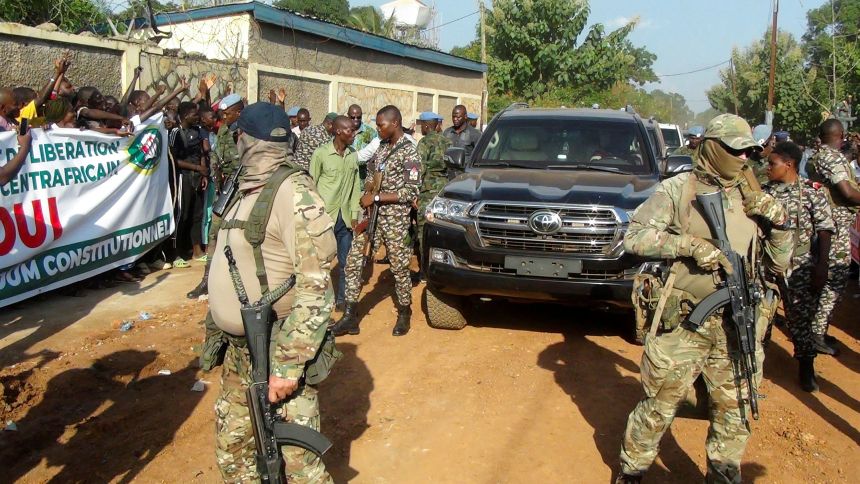Russia’s military footprint in Africa is undergoing a significant transformation as the notorious Wagner Group, once the Kremlin’s most visible paramilitary force on the continent, is being replaced by a new entity known as the Africa Corps. This shift comes after years of Wagner’s controversial involvement in conflicts across the Sahel and Central Africa, where it was both hailed as a stabilizing force by some governments and condemned for widespread human rights abuses by international observers.
For nearly a decade, Wagner served as Moscow’s unofficial arm in Africa, fighting alongside local armies in fragile states such as Mali and the Central African Republic (CAR). The group gained a reputation for brutal counterinsurgency tactics, extracting lucrative mining concessions, and serving as a symbol of Russia’s growing influence at a time when Western forces were losing ground in the region. Wagner fighters were celebrated by some local populations for supporting governments against rebels and insurgents, yet they were also accused of extrajudicial killings, intimidation, and looting.
The group’s prominence began to unravel after its leader, Yevgeny Prigozhin, staged a dramatic but failed mutiny against Moscow in June 2023. Two months later, Prigozhin was killed in a mysterious plane crash, further signaling the end of Wagner’s independence. Now, Russia has consolidated its foreign military ventures under the Africa Corps, a paramilitary force directly controlled by the Russian defense ministry.
Unlike Wagner, which operated in the shadows and profited through opaque deals and mining contracts, the Africa Corps is presented as a formal extension of Russia’s global military strategy. Recruitment for the corps prioritizes experienced Russian commanders and former Wagner fighters, ensuring continuity of combat expertise while placing the organization under tighter state supervision. In early 2024, the Africa Corps announced through its Telegram channel that it had already deployed to Mali and was conducting joint operations with local forces against jihadist militias. Similar deployments have been reported in Burkina Faso, Niger, and CAR, where the Kremlin has reportedly pressured authorities to replace Wagner with its new state-backed proxy.
The timing of Wagner’s replacement is crucial. Since 2022, Western military missions in the Sahel have faced severe pushback, with French and European troops expelled from Mali and Burkina Faso amid rising anti-Western sentiment. This vacuum has provided Moscow with an opportunity to position itself as the preferred security partner for coup-led governments across the region. At the Russia–Africa Summit in 2023, President Vladimir Putin revealed that Moscow had signed military-technical agreements with more than 40 African nations, offering weapons, equipment, and training. The Africa Corps now appears to be the vehicle through which these commitments will be enforced.
In CAR, Wagner had entrenched itself as the dominant security force since 2018, protecting President Faustin-Archange Touadéra, reclaiming rebel-held territories, and securing mining concessions in a country where nearly 70% of the population lives in extreme poverty. However, recent reports suggest that Russian officials have asked CAR’s leadership to transition payments and security arrangements to the Africa Corps, signaling a full-scale institutional shift away from Wagner.
Analysts argue that this transition is part of a broader rebranding strategy. By phasing out the Wagner name—which has become synonymous with mutiny, sanctions, and human rights violations—Russia can maintain influence while mitigating reputational and legal risks. Héni Nsaibia, a senior analyst at the Armed Conflict Location & Event Data Project (ACLED), noted that Moscow is “likely consolidating its foreign military ventures under formal state control by erasing the Wagner brand while retaining its core functions under the Africa Corps.” This approach could provide Russia with greater legitimacy in its dealings with African states while ensuring operations remain tightly coordinated with the Kremlin.
Still, the legacy of Wagner raises questions about what the Africa Corps will truly bring to Africa’s conflict zones. Human rights organizations have accused Wagner fighters of mass killings, torture, and intimidation campaigns, with the European Union imposing sanctions in 2021 and 2023 on the group and its affiliates. United Nations experts have also demanded independent investigations into Wagner’s alleged atrocities in Mali, where entire villages were reportedly targeted during counterinsurgency operations.
On the battlefield, the effectiveness of Wagner—and now the Africa Corps—remains contested. Some local leaders credit Wagner with helping recapture territory and stabilizing fragile regimes, while security experts argue that jihadist groups have only spread further across Mali, Burkina Faso, and Niger despite Russia’s involvement. “I don’t see what Wagner has brought to the battle against terrorists,” said Mamadou Adje, a retired Senegalese colonel and security consultant. “Since they joined the fight, jihadists have spread with devastating civilian casualties.”
The Africa Corps inherits not only Wagner’s fighters but also its controversies. Whether the new Russian paramilitary will operate with greater discipline and legitimacy under Moscow’s direct control—or simply replicate Wagner’s opaque and brutal methods under a different name—remains uncertain. For now, what is clear is that Russia has no intention of retreating from Africa. Instead, through the Africa Corps, the Kremlin is deepening its foothold in a region increasingly alienated from the West, reinforcing its role as a decisive power broker in the continent’s volatile security landscape.













Leave a comment